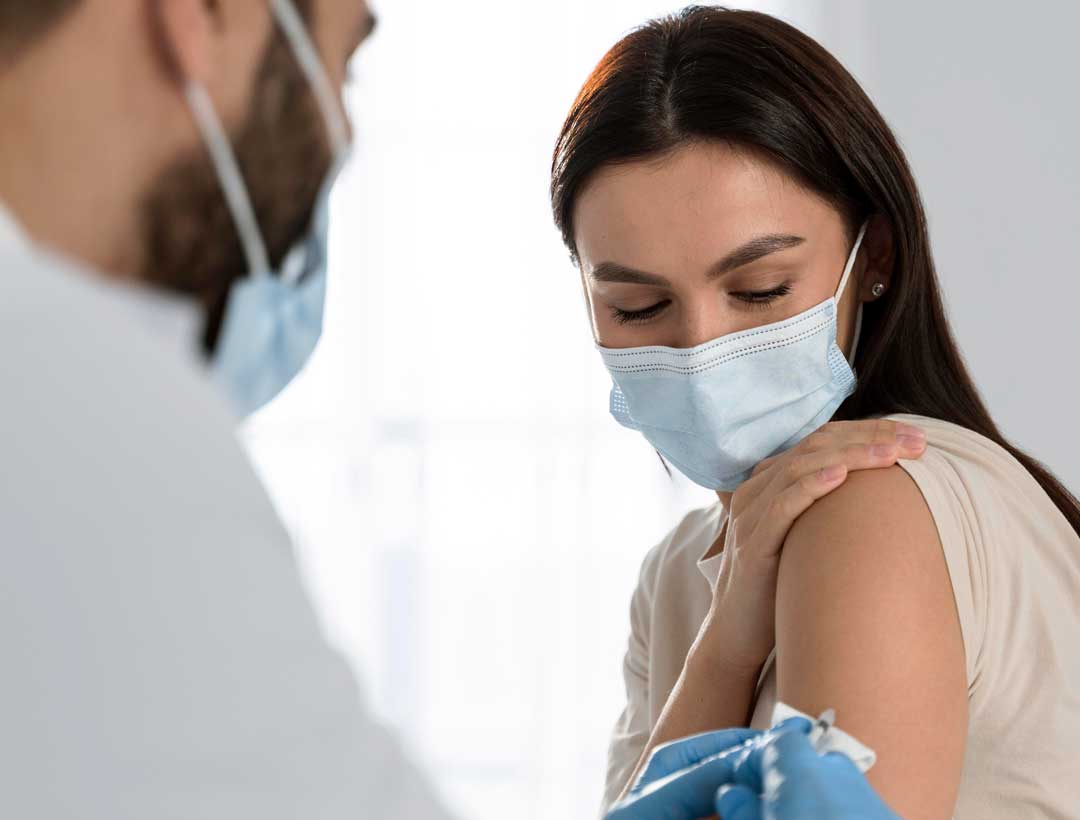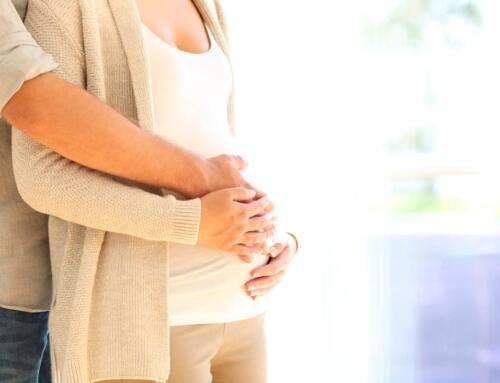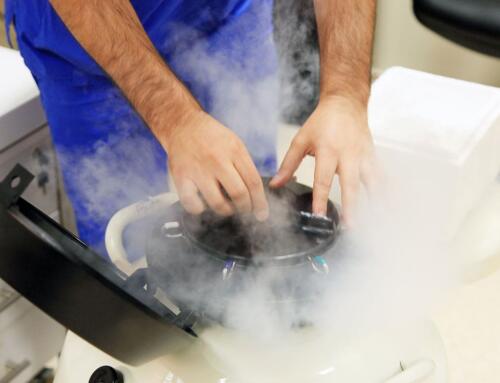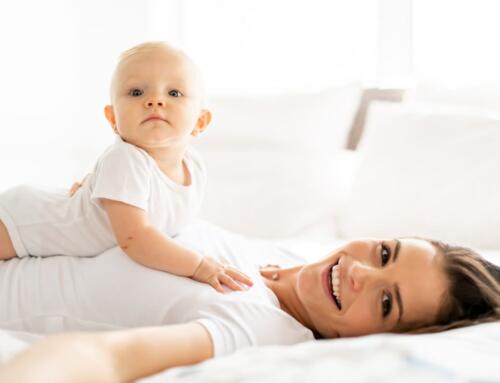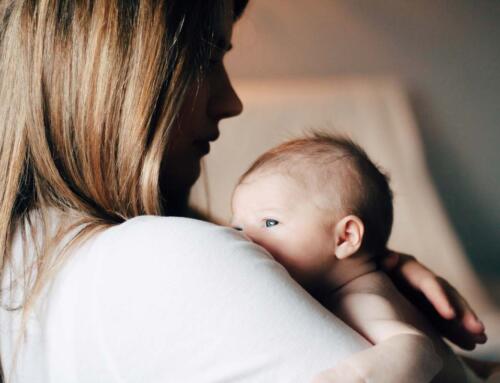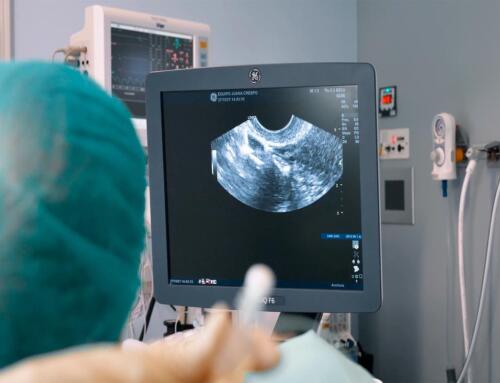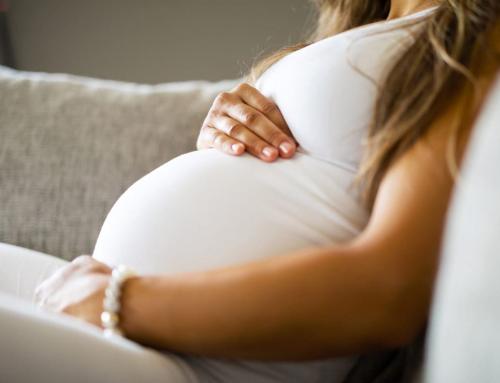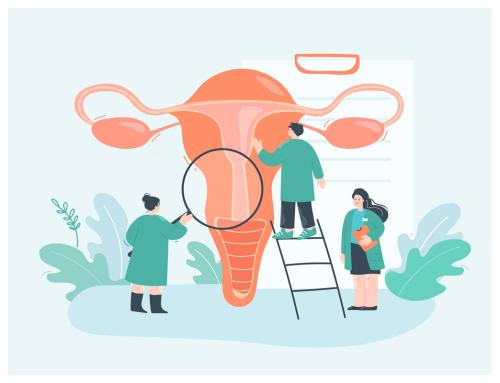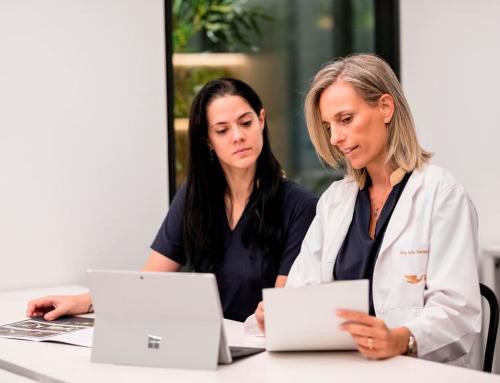From Juana Crespo we want to answer several questions that are involved in the concerning situation of the pandemic. And that coincided with the arrival of the sixth wave of the pandemic with the Omicron variant last Christmas. But, as with everything concerning this virus, we have to go step by step, depending on the evolution of the pandemic and, above all, on the scientific evidence.
Update: according to Fei Chen et al. “Human Reproduction, Volume 37, Issue 1, January”
Several fertility societies announced that COVID-19 mRNA vaccines are unlikely to affect fertility. The current evidence is very limited, which is one of the reasons why people are hesitant to get vaccinated, especially pregnant women.
Active COVID-19 infection in the male reproductive system or in the fetus may pose an enormous threat to human reproductive health. This review indicates that both men and women, especially pregnant women, have no fertility problems or increased adverse pregnancy outcomes following vaccination and, in particular, the benefits of maternal antibodies transferred across the placenta outweigh any known or potential risks.
On the other hand, a few weeks ago the Federation of Spanish Scientific Medical Associations (FACME), among which is the Spanish Society of Gynecology and Obstetrics (SEGO), published an update of its recommendations on vaccination for pregnant women or women planning pregnancy. Here we explain the fundamental aspects of these recommendations.
It is advisable to administer the third dose of Covid vaccine during pregnancy.
Apparently, there are no data to suggest that the risk of the third dose of Covid vaccine in pregnant women is different from that of the previous doses. What has been shown is that, if infected in the third trimester of pregnancy, the immune response stimulates a number of complications that can lead to preeclampsia and/or preterm delivery and other serious complications due to Covid.
It is therefore advisable for the pregnant woman to reach the third trimester immunized against the virus. This avoids compromising the health of the mother-to-be or the baby.
Vaccination from the 14th week of gestation onwards
According to the FACME, it is preferable that the vaccination be carried out from the 14th week of gestation. In this way, the aim is to avoid the first trimester of pregnancy which, theoretically, is the period of greatest risk to the fetus from the vaccine. At the same time, by vaccinating in the second trimester, the aim is to immunize before reaching the period of maximum risk of complications of natural infection, which is in the third trimester of gestation.
However, there is no contraindication to vaccination in any trimester of pregnancy. Therefore, vaccination is a matter to be assessed individually by each pregnant woman with her gynecologist.
The most appropriate vaccine during pregnancy
According to scientific evidence, it is most appropriate for any of the doses of the Covid vaccine in pregnant women to be the messenger RNA vaccines, i.e., Pfizer and Moderna, since they are the most studied and have the greatest margin of safety.
Even if the first doses of vaccine received are from AstraZeneca or Janssen, a messenger RNA vaccine is recommended for the booster dose in pregnant women.
Booster vaccination and lactation
As with the previous doses, the third dose of Covid-19 vaccine is fully compatible with breastfeeding. It is therefore recommended that the mother be vaccinated for her own protection and that of her baby.
Thanks to breastfeeding, the baby also receives the antibody protection generated by the mother against Covid-19.
It should be remembered that the vaccines recommended for pregnant or breastfeeding women are messenger RNA vaccines. That is, vaccines that do not contain live microorganisms and, therefore, are not capable of infecting the mother or the baby.
Therefore, the third dose of the vaccine is strongly recommended for breastfeeding mothers.
Third dose of Covid vaccine in IVF
Third dose of Covid vaccine in assisted reproduction
If you are trying to get pregnant, either naturally or through assisted reproduction, scientists advise that vaccination should be done before the onset of pregnancy.
At this time, there is no scientific evidence that the Covid vaccine causes infertility in either men or women. Nor has it been linked to miscarriage.
However, if you are planning to undergo assisted reproductive treatment, you should keep these premises in mind:
- If you are going to start assisted reproductive treatment, you do not have to interrupt or postpone it, nor do you have to postpone vaccination. You can be vaccinated when it corresponds to your age or when six months have passed since the vaccination with mRNA (Pfizer or Moderna). Or three months after vaccination with AstraZeneca or Janssen to maintain full protection. Once vaccinated, you can continue with your assisted reproduction treatment, whether it is artificial insemination, in vitro fertilization, oocyte donation, etc.
- Avoid getting vaccinated for any dose on days close to the puncture, transfer or artificial insemination. Due to the possibility of suffering fever as a side effect of any dose of vaccination, and that this can hinder embryo implantation, it is advisable to move the date of vaccination away from three key moments in assisted reproduction treatments: ovarian puncture, embryo transfer or artificial insemination. Specifically, at Juana Crespo we recommend our patients to avoid vaccination during the three days before and the three days after the ovarian puncture, embryo transfer or artificial insemination.
Otherwise, you can continue with your assisted reproduction treatment as normal following your gynecologist’s recommendations.
Talk to us, we are at your side
Since the health recommendations are evolving as the pandemic progresses, from Juana Crespo we advise you to consult with your gynecologist about the most appropriate actions for your specific case.
If you have any questions regarding the third dose of Covid vaccination during your assisted reproduction treatment, we recommend you to go to the specialist and not to postpone your treatments.
In case you are trying to conceive naturally and have not been able to, it is not advisable to let another month go by. Postponing an assisted reproduction treatment for months leads to a reduction in the chances of achieving the desired pregnancy.
Contact us at 961 042 557 or write to us at info@juanacrespo.es and you will be able to book your first consultation at Juana Crespo. We are at your side to clarify all your concerns regarding the COVID-19 vaccine and assisted reproduction treatments.


